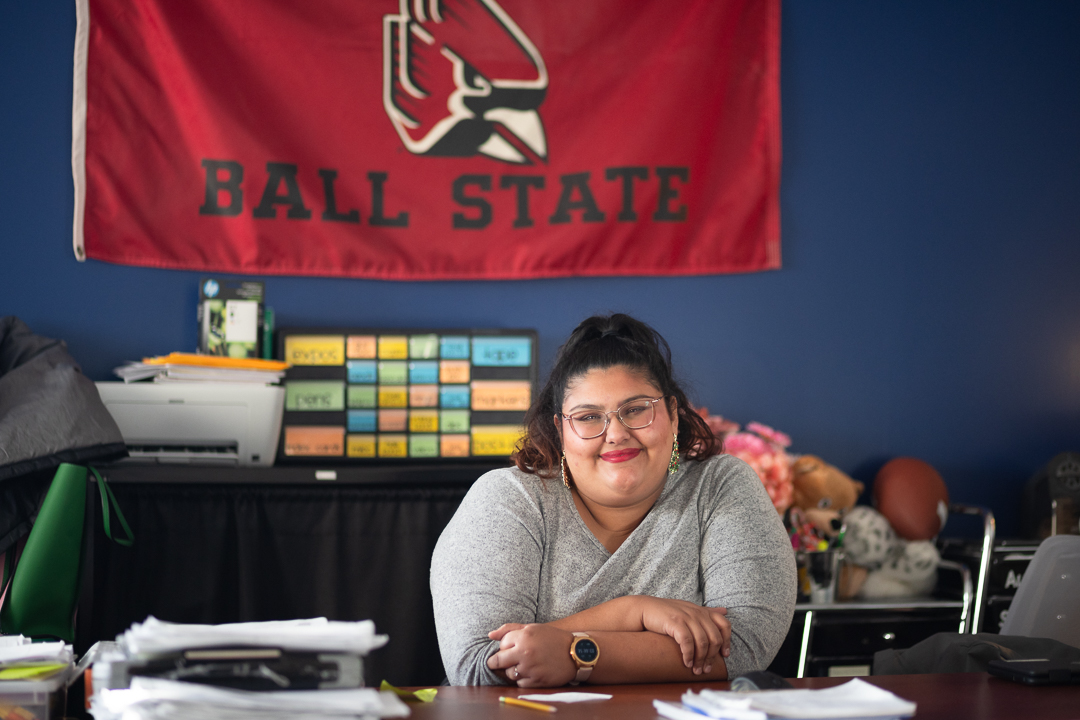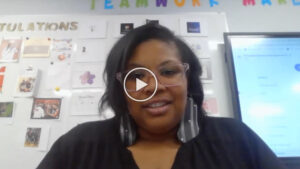My younger sister and I are 15 years apart. When I was in college studying creative writing, she was just starting kindergarten and struggling with her sight words. She has ADHD, and my parents couldn’t afford a tutor. So when I took a break from college, I was at home helping her learn to read out loud. That experience stuck with me.
After I graduated, I knew I liked working with kids, so I let that guide me. I went into daycare first, at a Head Start. The babies were great, but it was a lot of play, and I kind of wanted to do more instruction. My husband was working at this school at the time, and he told me they were looking for a second grade teacher. I knew it would be a little rough, but second graders are sweet and they still need you. So I decided to get an emergency license and do it.
The first year of teaching is always tough. I wasn’t in a teaching program at the time, and I had no experience beyond daycare. I was struggling.
When they asked me to come back the next year, I knew I wasn’t quite ready yet. Instead, I decided to take a break from leading a classroom and become an aide for third grade. I worked with an instructional coach, and the third grade teacher I learned from was incredible.
But then the school needed a teacher for first grade mid-year, so I went in and taught first grade.
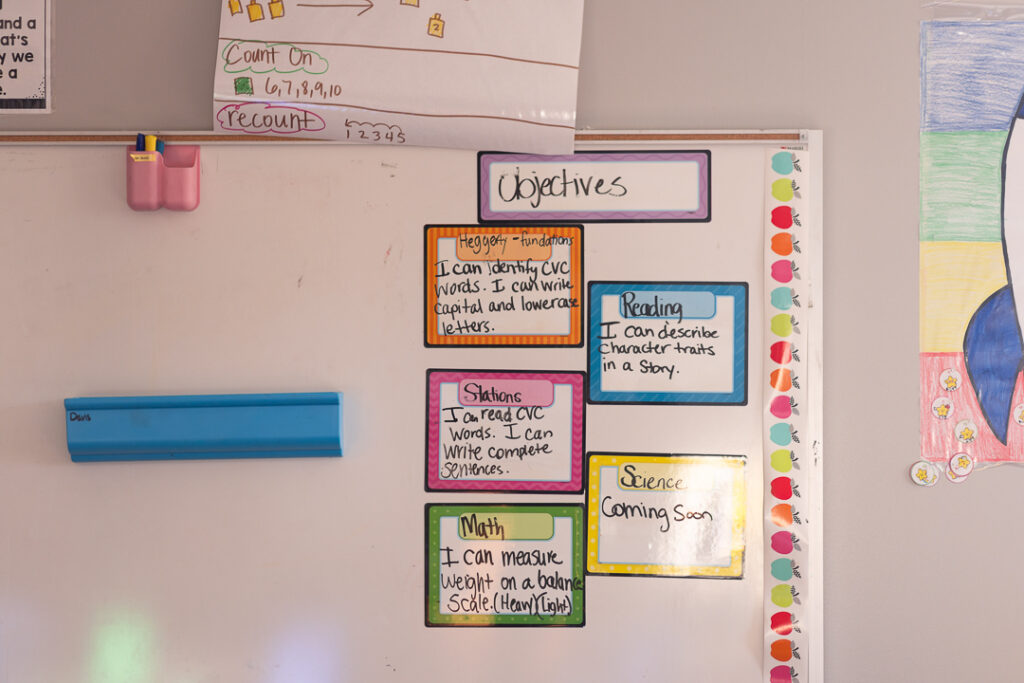
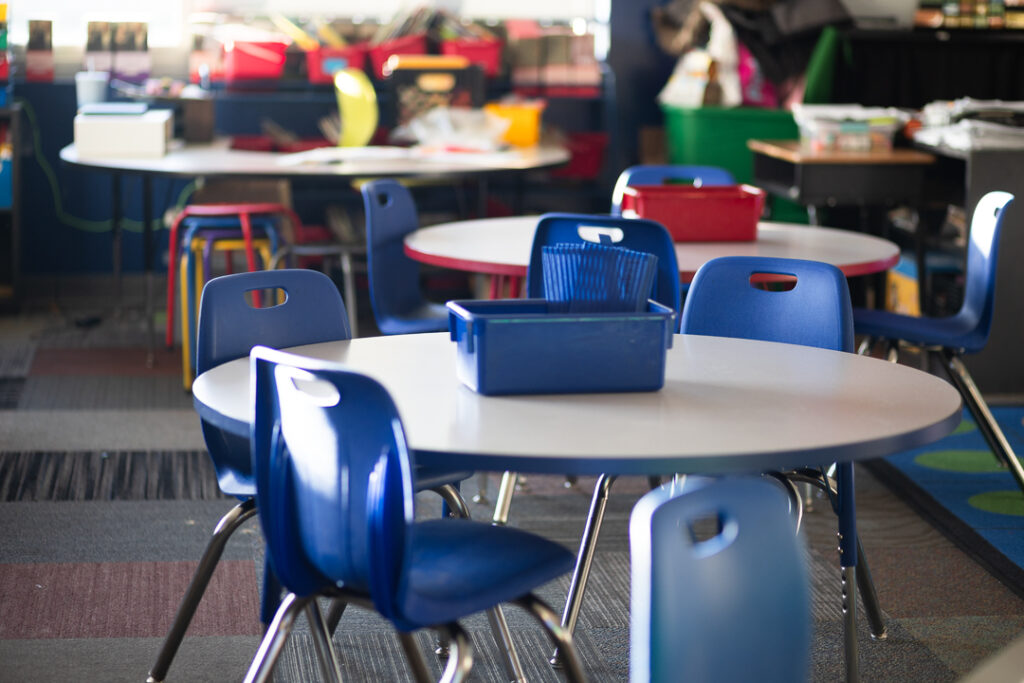
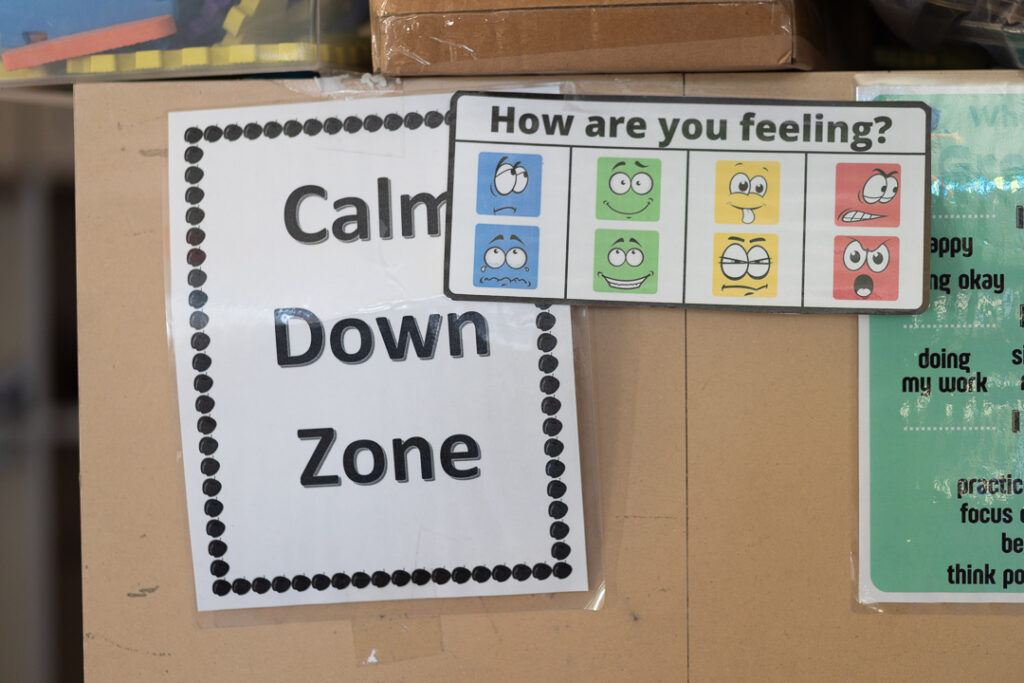
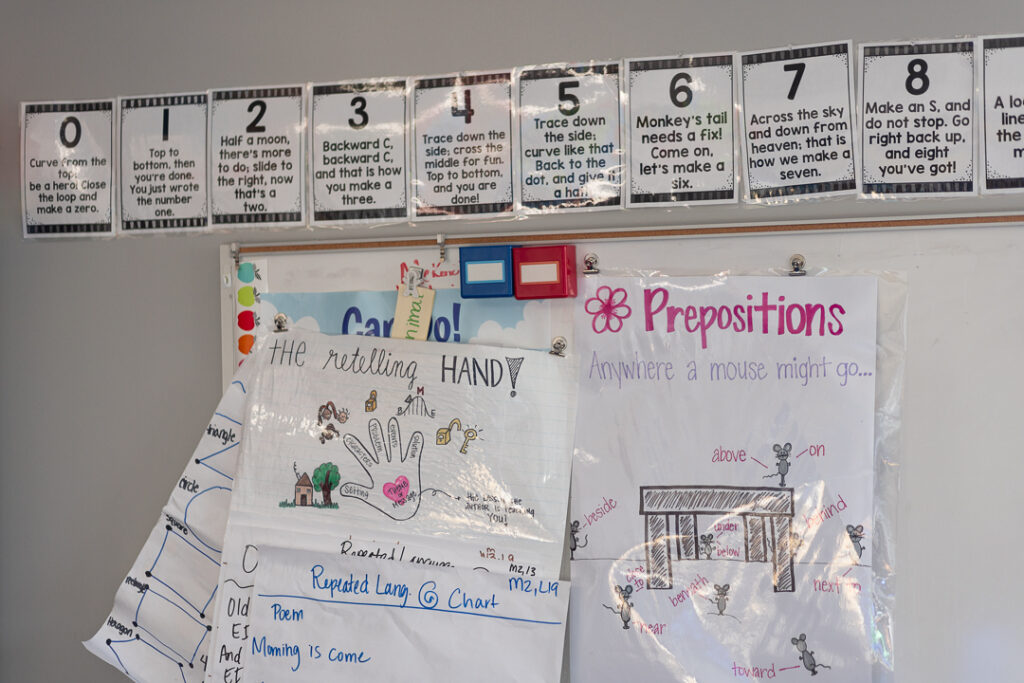
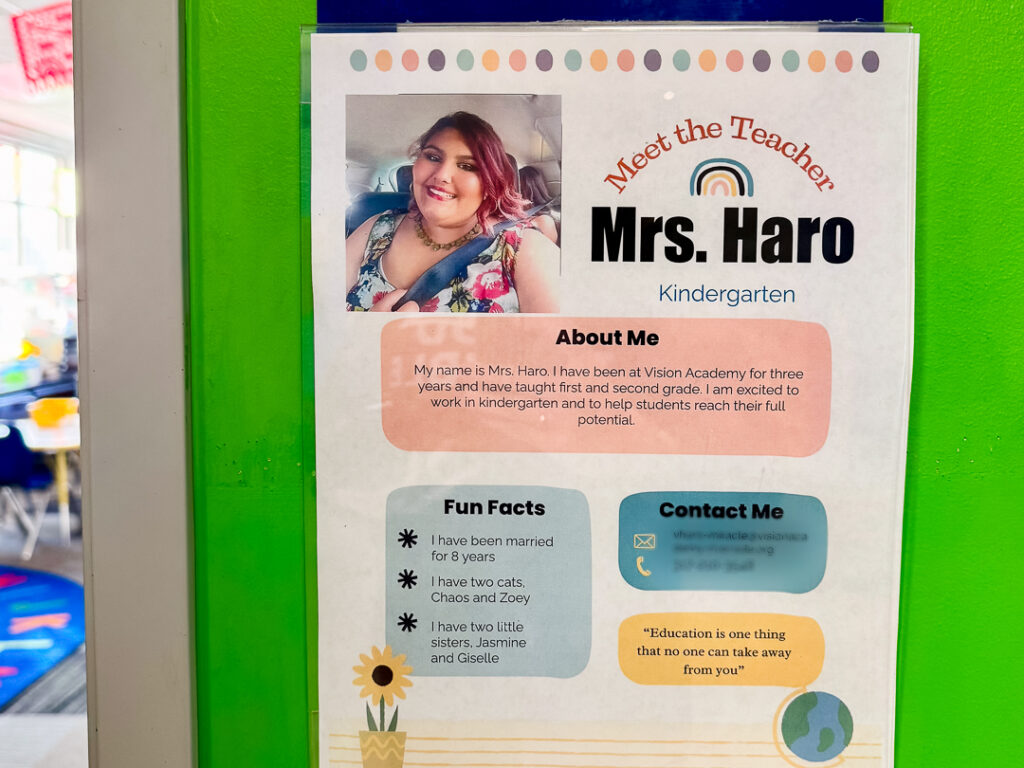
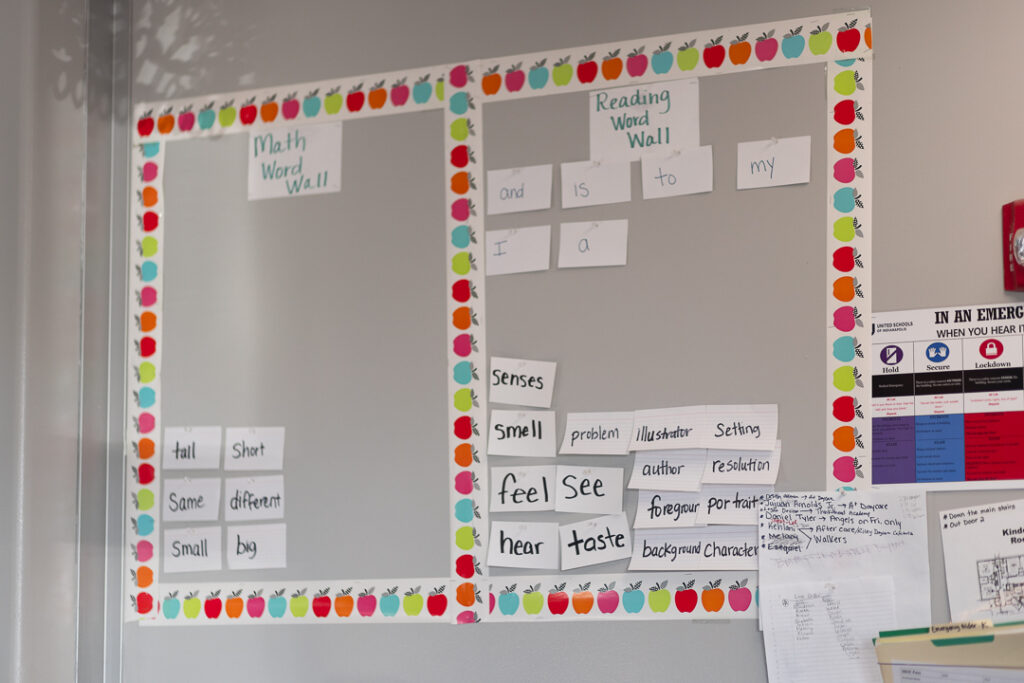
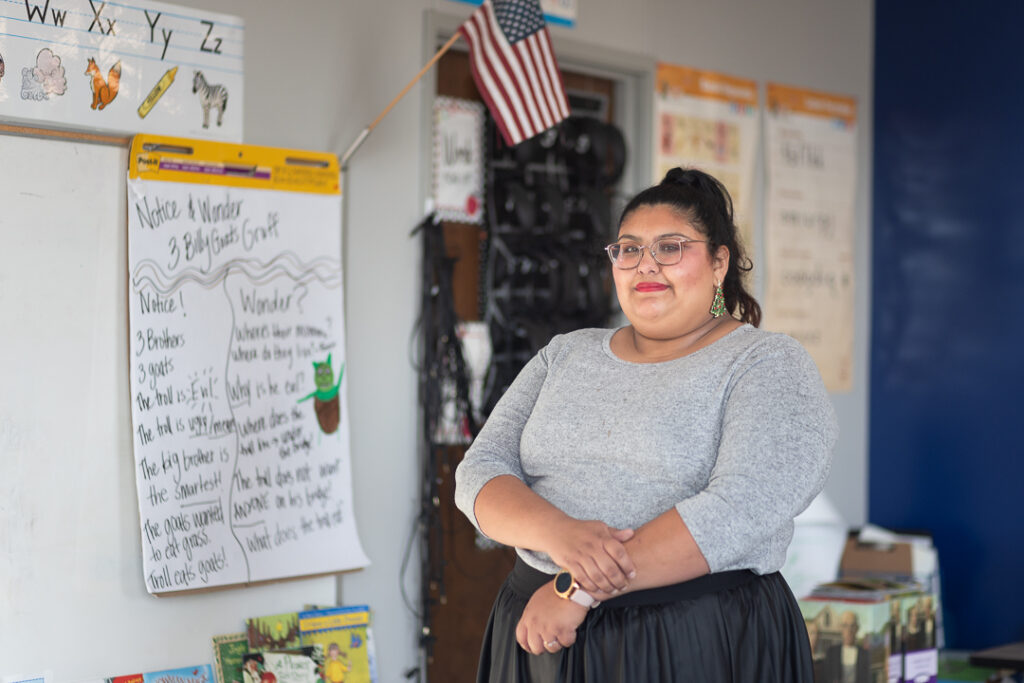
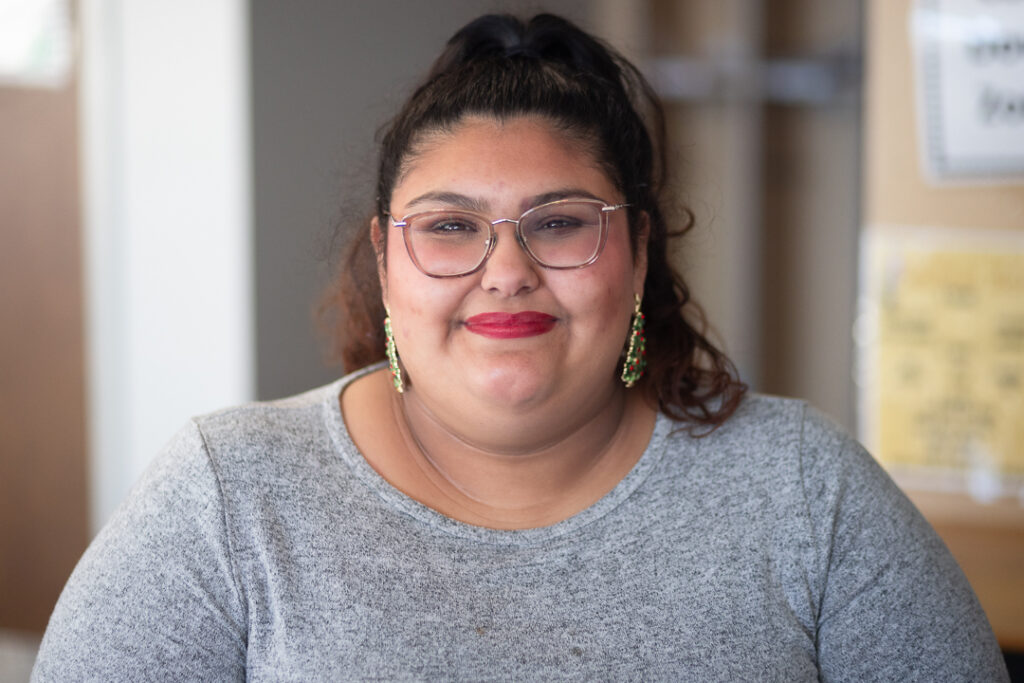
It was rough. I took over for the first grade spring semester, and then I came back teaching first grade for the full year. I thought, ‘I don’t know if I’m cut out for this,’ and I wasn’t sure if I could keep teaching. That’s when I started Indianapolis Teaching Fellows.
I think it just took me some time to find what grade I feel comfortable with. I guess I needed more walking through than they provided. Honestly, the biggest issue was my confidence. I just did not feel confident teaching. Now, I feel a lot more comfortable and confident. It just took me some time.
It’s intimidating, and there were a lot of times when I thought, ‘I’m not good enough.’ Those negative thoughts kept creeping in. They were overbearing.
At that point, my principal asked, ‘How about kindergarten? It’s a little bit different. You’d have a co-teacher, you’d have some support.’ Since then, I’ve been loving teaching.
This year, everything feels different. I finally feel more comfortable and confident in the classroom. I’m understanding the lessons on a deeper level, and I’ve learned how to make them my own. My coach once told me, ‘You have to make it fun. You’re acting, you’re putting on a show.’ That stuck with me.
Now, I know how to read a lesson plan, pull out the most important parts, and keep my students engaged. I still have more to learn, but I really feel like a teacher. I’m really glad that I stuck it out, and I have great support here.
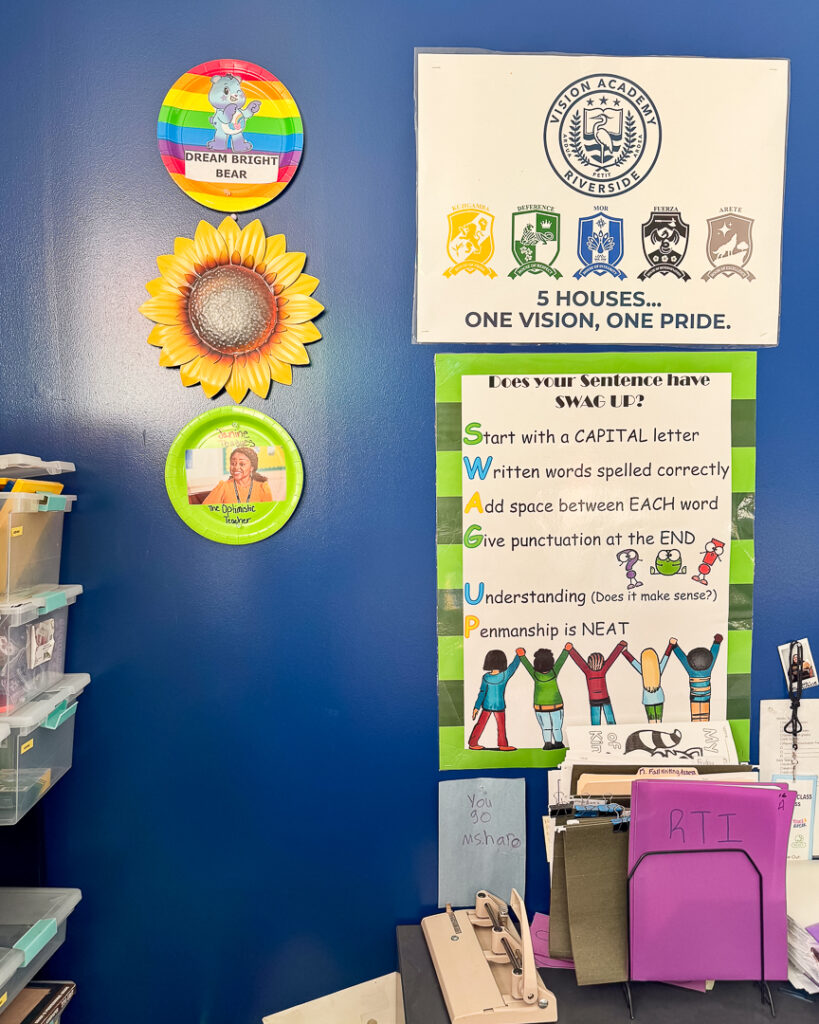
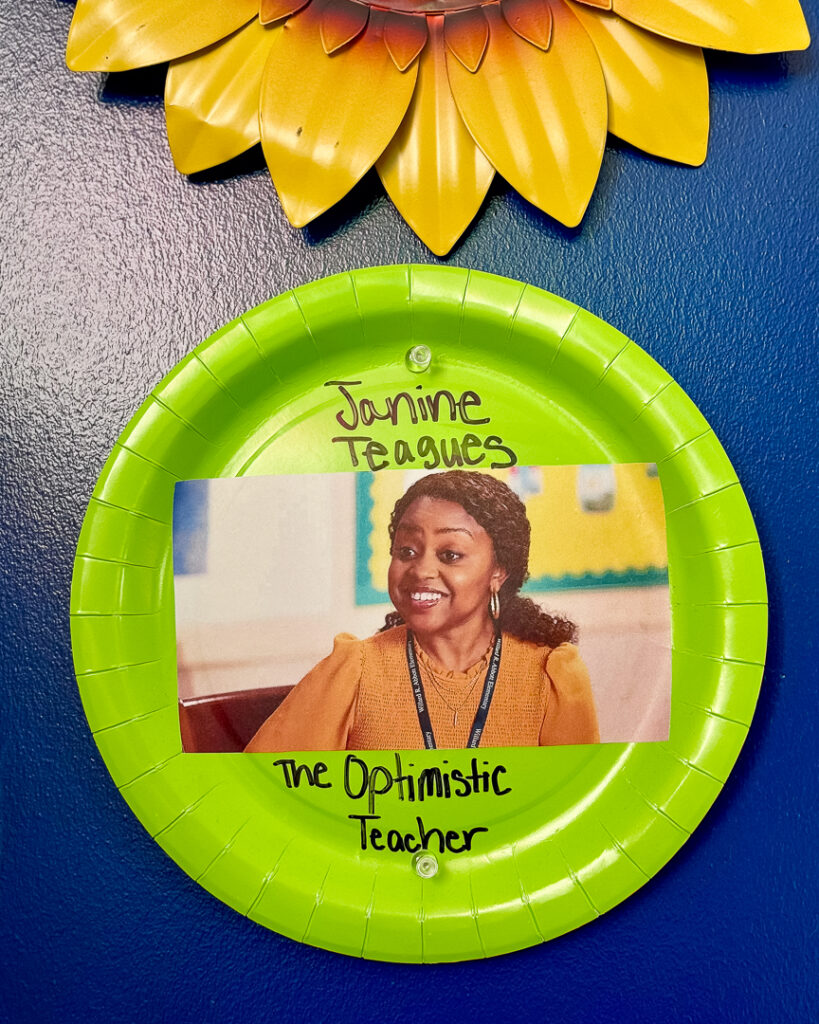
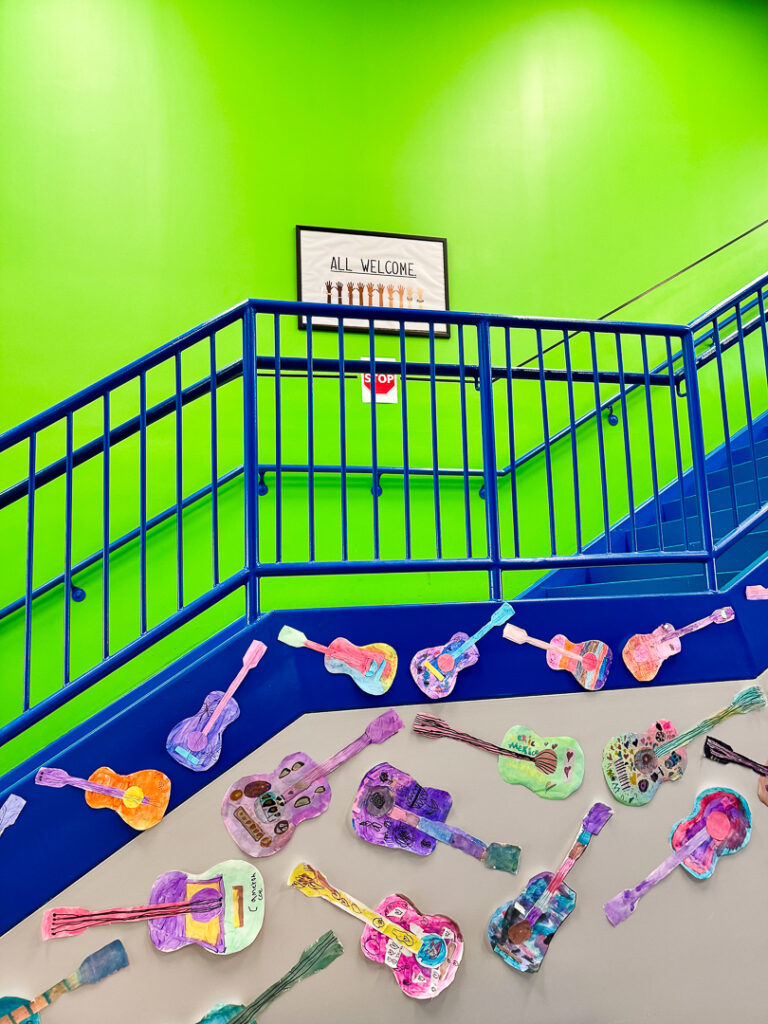
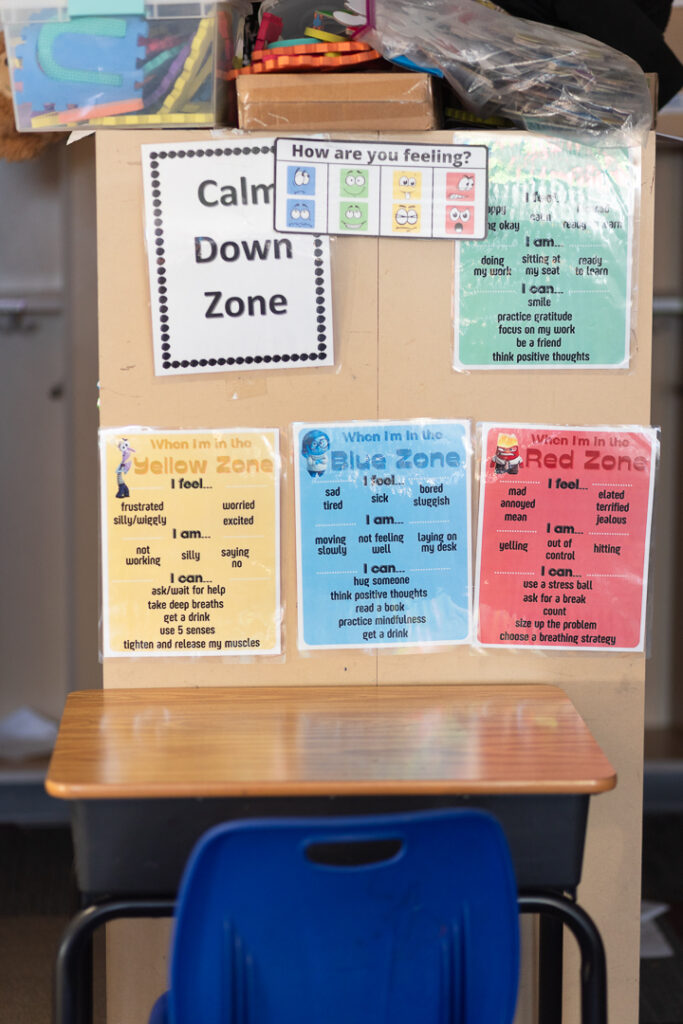
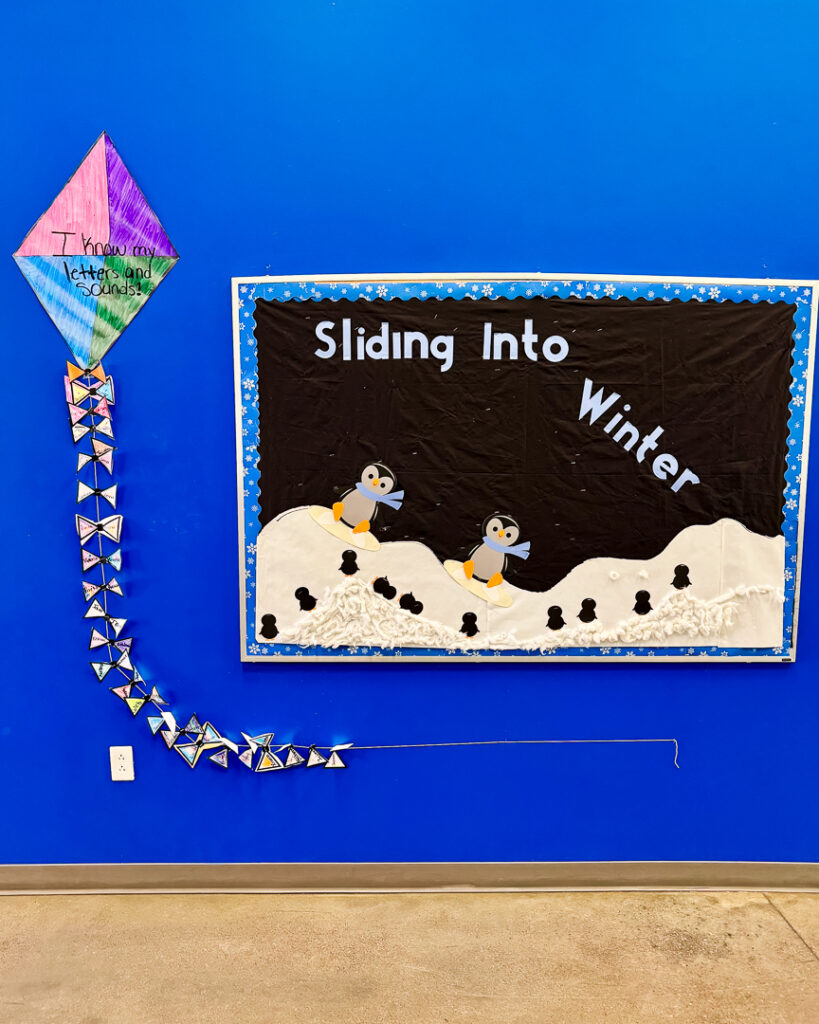
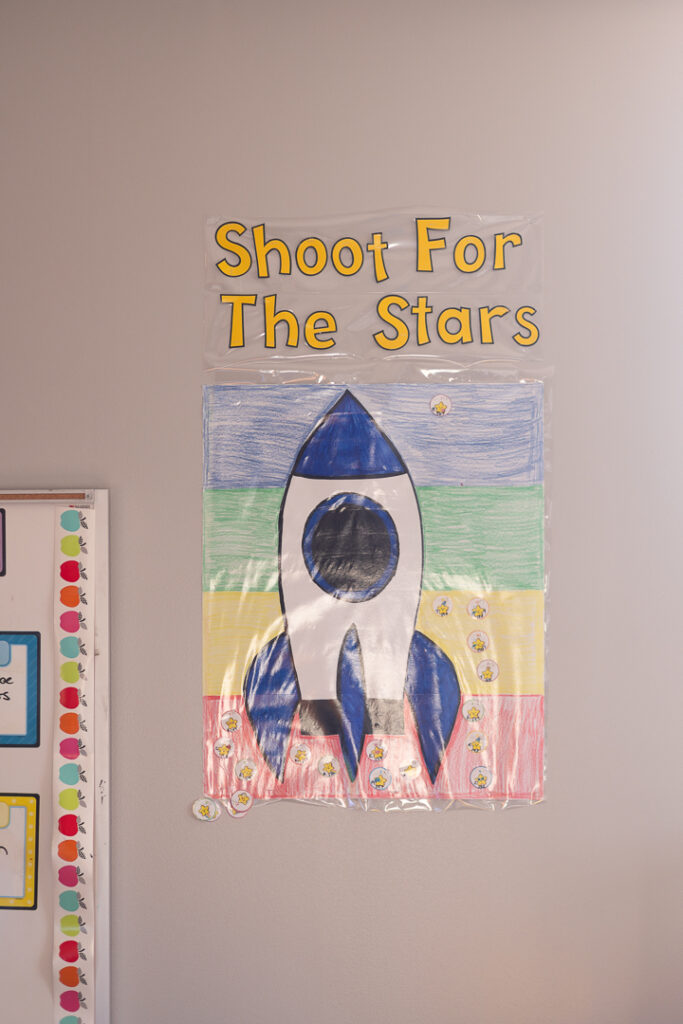
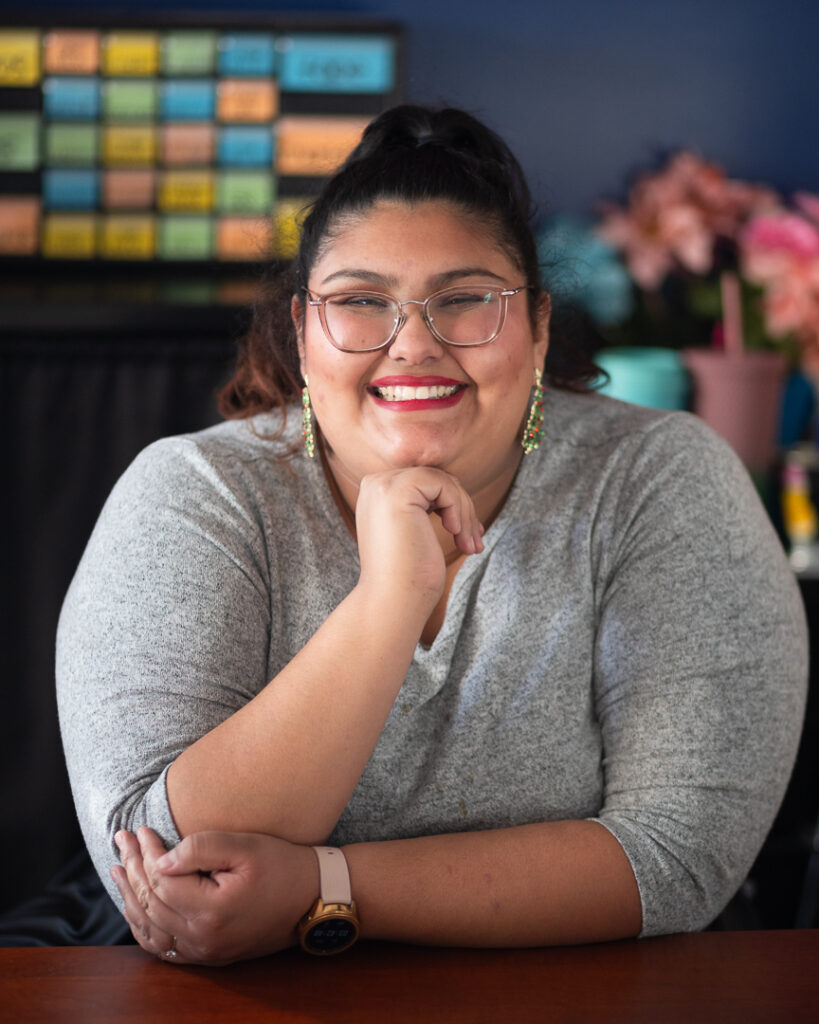
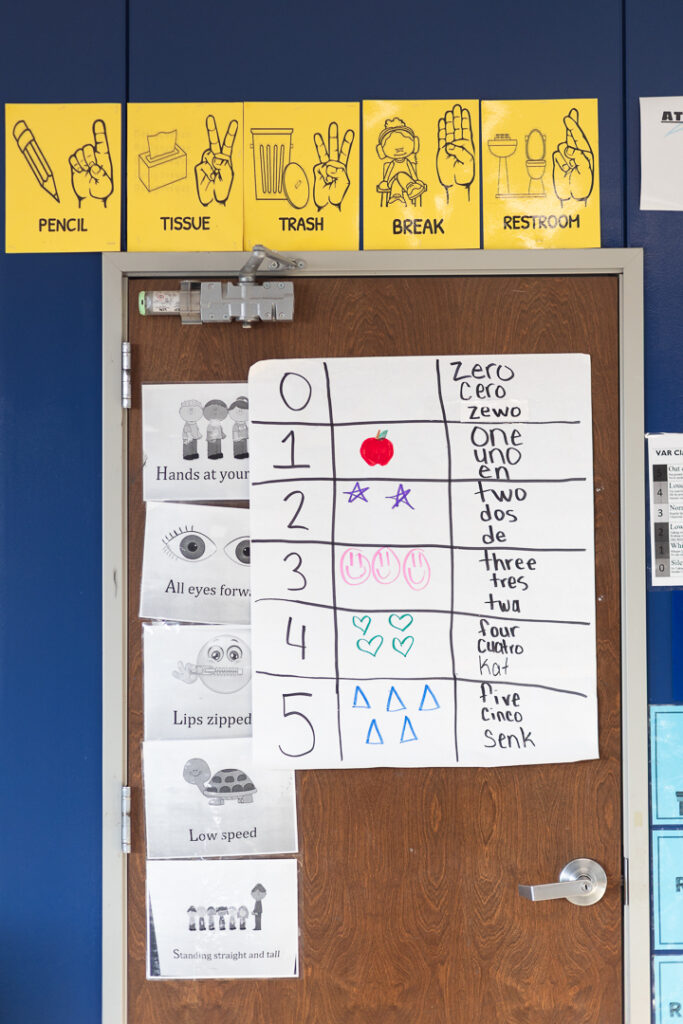
One of my second grade girls was very shy and quiet. She needed extra help, and I felt really bad, because I thought I was letting them all down. She ended up being held back because she needed that extra support, but now she’s in fourth grade, and I’ve seen her grow so much as a person. It’s been so wonderful. I’ve also taught her siblings, which has been great.
Another girl—she’s such a sweetheart. Very quiet, very sweet. She wrote me a little note that said, ‘Miss Haro is a good teacher.’ I put it on my clipboard. I need that reminder sometimes. It’s the little things like that, these little moments and bubbles of personality, that make teaching special for me.
When I have kids who come from tough backgrounds and don’t know how to manage their emotions yet, and we’re working together, I see them balling their fists, and they’re all angry and sad… I say, ‘It’s okay, take a breath.’ Then other times, they see me tense up, and I don’t even realize I’m doing it. They tell me, ‘It’s okay, Miss Haro, take a breath.’
They’re just so wonderful, they really are. They come in with completely different insights. Even with these babies who have a lot of trauma and don’t have the same privileges as many other students outside of inner-city schools, they are still just so full of love and so forgiving.
No matter what, teaching is going to be hard. I don’t think it matters whether you had four years of traditional training or if you were just thrown in—it’s gonna take a bit to find your footing and put all the pieces together to be a good teacher. I felt like I was drowning at first.
One of my professors told us we needed to have grit. She even gave us a grit exam. I think that’s true—it’s important to have that grit as a teacher. To just keep pushing through, keep trying, keep going, one day at a time. Looking back, I appreciate that my administration let me flounder a little in the beginning. They let me find my bearings and build those relationships on my own, and then they stepped in with support and tips.
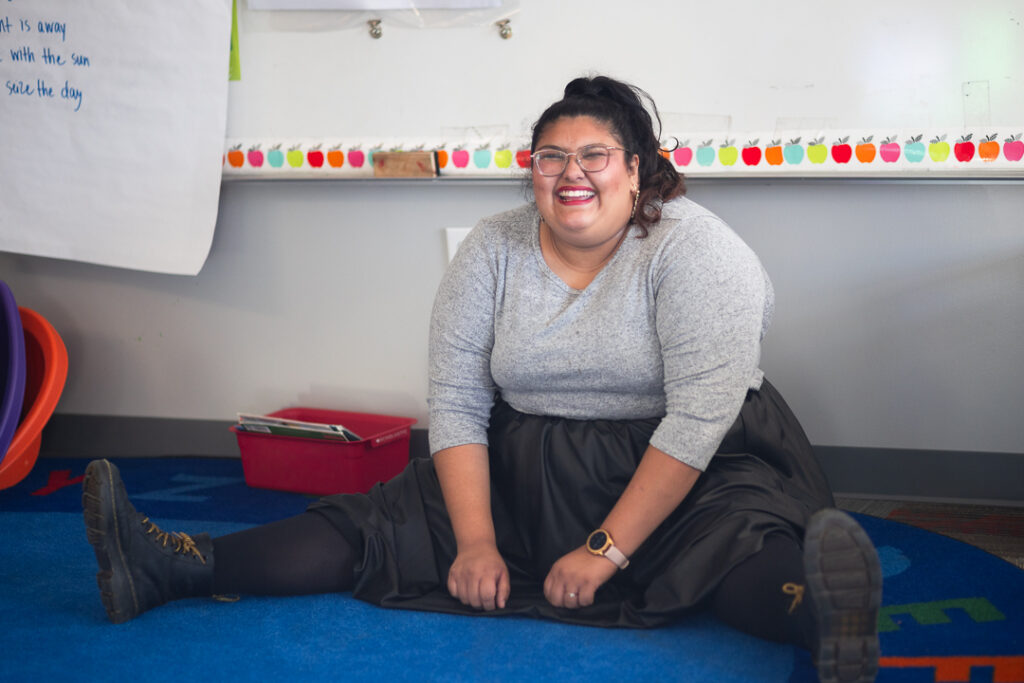
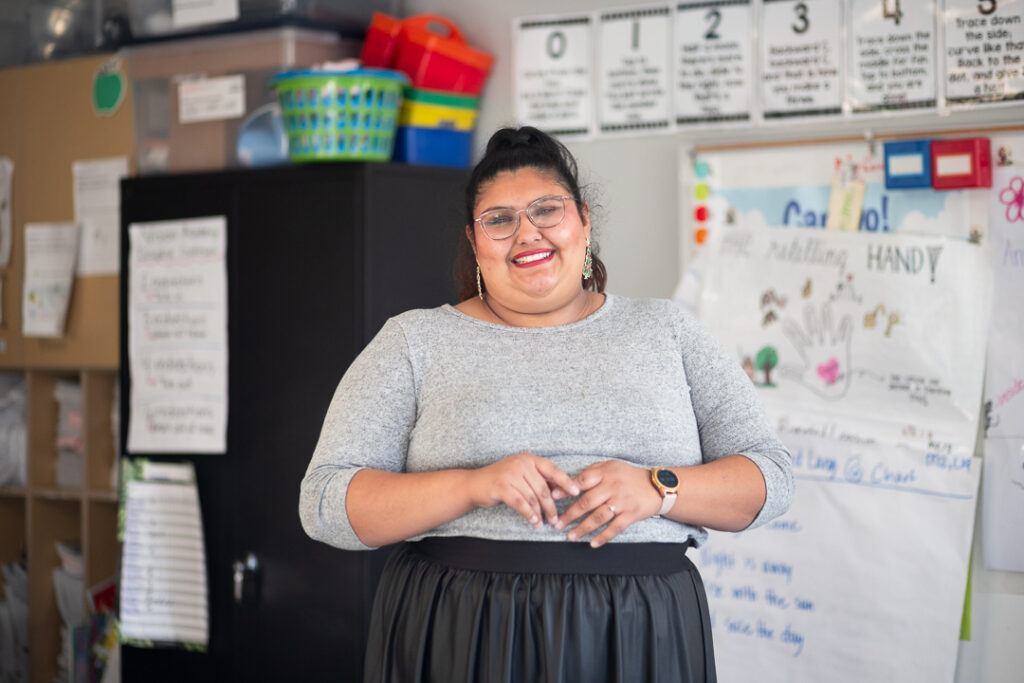
My parents are from the South Side of Chicago. When I was younger, I lived there for a little while. I think I was like five when we moved, but I spent a lot of time with my grandma. She was my babysitter. I went to school in Chicago up until sixth grade—all Catholic school, majority Hispanic kids.
My grandma only speaks Spanish. She doesn’t speak any English—except for the swear words. She’s got a potty mouth. My school was right across the street from her house, and my parents worked a lot.
My mom has a master’s in business. She was working through school for most of my life—first undergrad, then grad school. So while she was studying and working, I was with my grandma. Then, when my sister Jasmine was born, I was 10. It was a rough adjustment. I was excited to have a little baby to play with, but I had to wait a bit—she was too fragile.
My mom now works for the U.S. Department of Agriculture. She was running SNAP and WIC at one point, and my parents had the opportunity to move to Crown Point, where there was a great school system.
Crown Point is basically suburbia central. That’s when I started speaking Spanglish. I didn’t even realize I was mixing in Spanish words until kids started asking, ‘What are you talking about?’ I got bullied a little bit for it, got called slurs. It was rough. Crown Point is a very white town, and as a Mexican family, we stood out.
My younger sister had such low self-esteem. Her ADHD was undiagnosed at the time. Crown Point is a really good but rigorous school system, and so she had to learn 100 sight words by the end of kindergarten.
I got diagnosed with ADHD that year, as well as depression and anxiety. It was really rough. But working with my sister made me feel better—just kind of getting out of my head for a little bit. I was the lunch monitor at my sister’s elementary school, and it was really cool to see her at school and hang out with all the kids. I think that’s what kind of shifted my mindset.
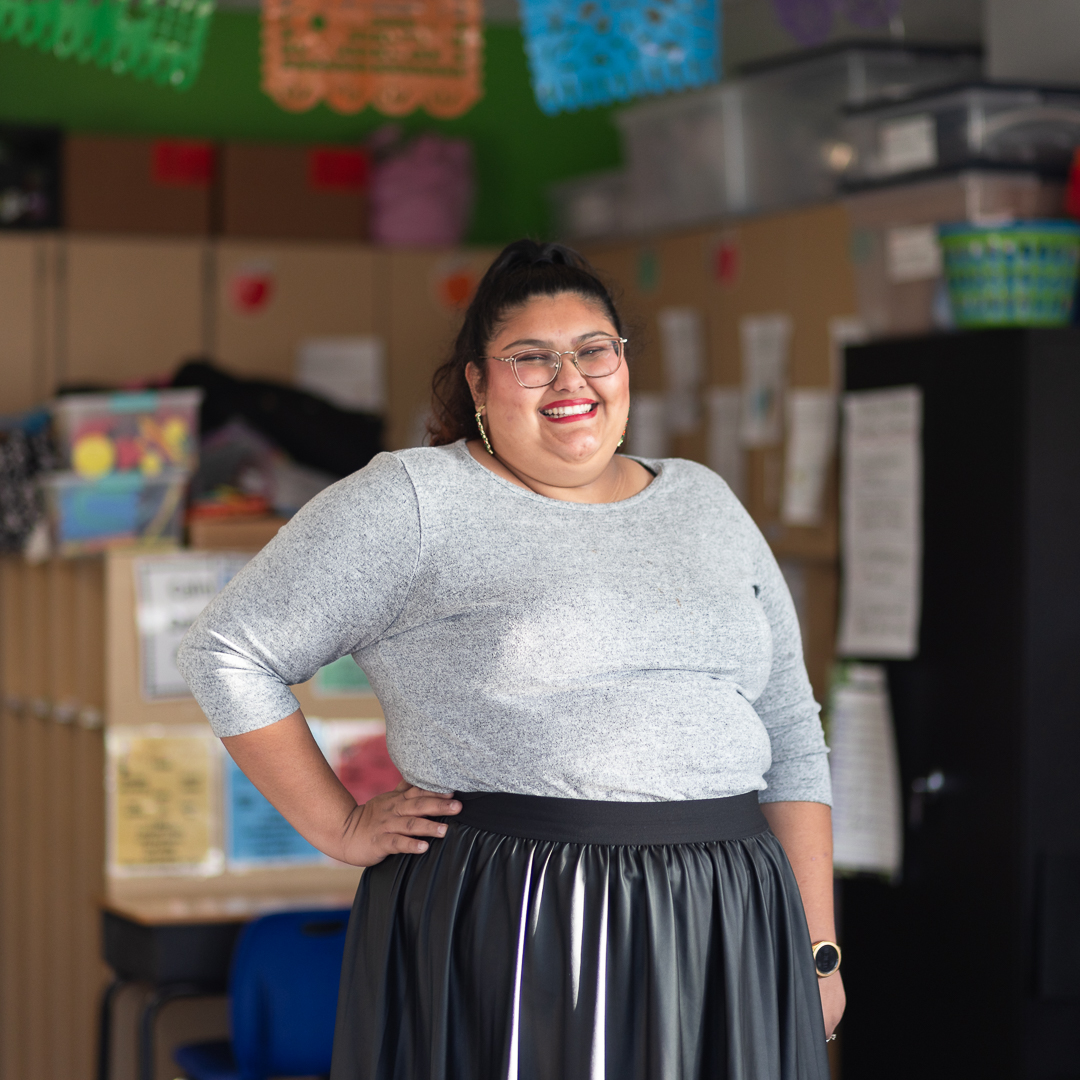
The way it’s set up right now, there are supposed to be two teachers in each classroom. That’s how it is for kindergarten. I’m kind of the floater between both classrooms, so I’m bouncing back and forth. I am trying to figure out different strategies to be more impactful in the classroom, right? But it’s an hour-and-a-half block, and I’m only in there for 20 minutes.
A lot of teachers are talking about how we have high expectations for these students academically, but when it comes to behavior, the team tends to look away. Like, these kids are cussing us out, right? I feel like they’re not being suspended enough—which I hate to say, and I know it sounds harsh—but these kids need to understand consequences. A lot of the time, parents need to feel these consequences, too.
Most of these kids came in not knowing their letters, even though they’re supposed to enter kindergarten already knowing their letters and sounds. I’ve liked seeing their growth this semester. It was just a big push on phonics and a big push on having them recognize letter names and letter sounds. Watching them learn and grow is always a big encouragement. Finding little nuggets of time to celebrate these wins with them is big.
I think I just want to stress—yes, teaching is hard. It’s going to be hard. But it’s worth it. It’s so worth it. They are so worth it. Especially in the inner city, these kids need teachers who are passionate, who are willing to grow and learn. Because not only do they need it—they deserve it. Right? They deserve the same love, care, and tenderness that wealthier kids get.
–Vanessa Haro-Miracle
Teacher at Vision Academy Riverside
Indianapolis Teaching Fellows, 2023 Cohort
Indianapolis, IN
